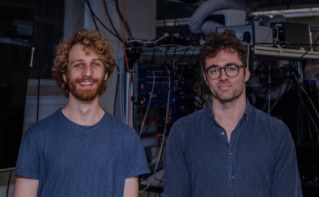
Significant technical and financial issues remain towards building a large, fault-tolerant quantum computer and one is unlikely to be built within the coming decade. That is according to a report by the National Academies of Sciences, Engineering, and Medicine (NASEM), which states that when quantum computers do become a reality they will expand the boundaries of humanity’s scientific knowledge and produce results that could “transform our understanding of the universe”.
The report — Quantum Computing: Progress and Prospects – highlights several technical problems that need to be overcome before a functional quantum computer could be built. They include boosting the ability of qubits to reject noise, developing quantum-error correction and overcoming the lack of ways to load large data inputs into a quantum computer. The 13-strong panel also says that the community needs to design improved quantum algorithms, develop a new “software stack” as well as tackle the present inability to measure the intermediate state of a quantum computer directly.
Given those technical challenges, the NASEM panel states that it is too early to predict the timeline for development of a practical quantum computer. While admitting that many quantum-computing researchers are already sharing advances, the panel calls for the community to hasten the process by constructing “an open ecosystem that enables cross-pollination of ideas and groups”. Financial investment is also critical, the report states, particularly if the US wants to retain a leading role in developing the technology given that both China and the European Union are devoting significant financial resources to the effort. Currently the US private sector plays a large role in the US quantum-computing effort, but the committee suggests that government funding “may be essential to prevent a significant decline”.
A privacy disaster
The report’s recommendations go beyond researchers building quantum computers, warning that such devices could compromise logarithmic-based public key cryptosystems, such as the current gold-standard RSA 2048. The panel urges that the community prioritize “the development, standardization, and deployment of post-quantum cryptography” to minimize “the chance of a potential security and privacy disaster”. The quantum Y2K moment
Ironically, the report declares that such an effort will reduce the usefulness of a quantum computer for cryptanalysis “and thus will reduce the extent to which the application will drive quantum computing R&D in the long term”. But overall, as panel member Bob Blakley, global director of information security innovation for CitiGroup, says, the trend in quantum computing “is somewhat toward optimism rather than pessimism”.




